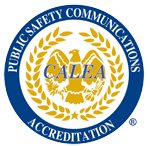When to Call 911
911 Getting Help Video
What Your Operator Will Need To Know
To help operators prioritize your call and to provide the responding units with the information they need, everyone is asked a standard set of questions.
To help operators prioritize your call and to provide the responding units with the information they need, everyone is asked a standard set of questions. Your operator will need to know:
- Location of the problem.
- Phone number you are calling from.
- Type of problem. The dispatcher will need to know if you are reporting an emergency or something that is not an emergency. You will be asked for a basic description of what occurred and when the incident happened.
- Give the dispatcher all the information possible. The more we know about the incident, the more effective we can be in helping you.
- Stay on the line until the operator terminates the call.
- Call 911 back if the situation changes.
Dial 911 To:
View examples of situations for when to dial 911.
- Report an emergency situation requiring a police officer at the scene.
- Summon an ambulance for medical assistance.
- Report a fire.
- Report a crime in progress.
- Report suspicious actiivity (e.g. alarms, shots fired, sounds of glass breaking, shouts for help, unfamiliar person carrying items from a house).
- Suspicious activity which may be a crime or leading to a crime.



